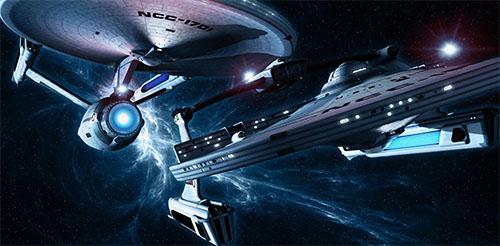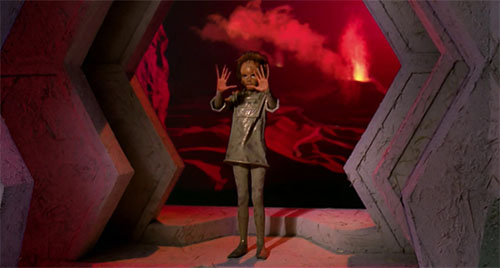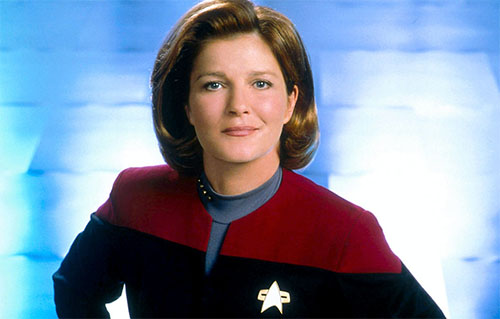Originally the Prime Directive prohibited interference with pre-warp cultures. The rationale behind the Prime Directive was that, no matter how good your intentions may be nor how terrible the thing you’re trying to prevent might be (in terms of plague or Holocaust or natural disaster), interference from a technologically advanced civilization was always worse for the native culture and the native population than letting the bad thing happen.
The ethics of this are debatable, but its roots are in the historical reality of advanced cultures interacting with less advanced cultures here on Earth. (Spoiler: It always ends badly for the less advanced culture.) In-universe, you can easily postulate that the Federation has studied a lot of practical cases (including those where they tried limited interference) and eventually concluded that interference is just a bad idea.
Thematically, it should be noted, the purpose of the Prime Directive was almost always about giving the protagonists something to rebel against: The Prime Directive says we shouldn’t do this, but we’re going to ignore it and save the day. The Prime Directive was thus characterized as something that was generally a good idea, but not always specifically a good idea. (I also don’t believe that the original series ever invoked the Prime Directive in order to justify standing aside and allowing a genocide to occur.)
The use of the Prime Directive saw a major thematic shift following the episode “Symbiosis” in the first season of Star Trek: The Next Generation. In this episode, Captain Picard uses some very clever Prime Directive judo after he discovers that one pre-warp civilization is selling another pre-warp civilization addictive drugs as the “cure” for withdrawal from the addictive drug. He can’t interfere by warning the addicted civilization, but he eventually resolves the situation by refusing to repair the freighters they use to deliver the addictive drugs. (He sure is lucky that the civilizations have lost the tech to repair those freighters for themselves!)
This episode was a clever little inversion of the traditional Prime Directive story, but its success largely characterized the use of the Prime Directive going forward: It was the thing to be obeyed slavishly, usually with a convenient Hand of the Author to set up a convenient series of coincidences to “prove” the rightness of the Prime Directive.
The next major shift in the Prime Directive came with the “Pen Pals” episode in the second season of TNG. In this episode, Picard claims that an entire species of intelligent life should be allowed to die in a natural holocaust because it was the “natural development” for that society. At the end of the episode, the Prime Directive is quietly bent in order to save the alien race (one of the last instances in which this would happen), but the precedent of “the Prime Directive says we should let extinction-level events happen from external causes” had been set. (This, IMO, is the point where the Prime Directive transitions from a decent directive for starship captains wielding civilization-altering technology without any immediate oversight to a completely contemptible and horrible concept.)
The final metamorphosis of the Prime Directive came during Voyager when it began getting applied to species capable of warp travel. The Prime Directive had become evil, now it was destined to become totally idiotic as Janeway ping-ponged her way between epic space battles one week and claiming that the ship couldn’t defend itself because of the Prime Directive the next.
Voyager also had a terrible predilection for the most contrived Hand-of-the-Author Prime Directive stories. For example, in “Prototype” we have B’elanna disobey Janeway’s claim that they can’t help a species of warp-capable androids because of the Prime Directive. Then, at the end of the episode, it turns out the androids were coincidentally racist genociders. (It’s the storytelling equivalent of claiming that you should never help hitchhikers because it might turn out that they’re Hitler on their way to register for public office.)
As a final footnote, we have “Dear Doctor” from Enterprise. In this episode, featuring a Prime Directive crisis before the Prime Directive existed, the Hand-of-the-Author which had become a metastatic cancer in Voyager is revealed to be a literal Hand of God: The Valakians are literally meant to go extinct so that the Menk can inherit the planet. A doctrine which had become completely vile and nonsensical is now sanctimoniously defended as an article of essentially religious faith.















The Prime Directive works when it is realized that it has to have exception for the facts on the ground. Letting a race be wiped out make a mockery out of the idea of “natural development” for example.
And you really cannot hope for good (or even coherent) writing from Voyager in any case.
What about the beginning of the latest JJ Abrams Star Trek movie where the Prime Directive seems to be that you can save a primitive alien species from natural disaster just so long as they don’t know you are doing it?
The main problem with the prime directive is that it is never actually defined. It is whatever the writer of the current episodes wants it to be to create the most artificial drama where there might otherwise not be any.
Someone should write a sensible Prime Directive. Anyone know if a stab at it exists somewhere?
The Prime Directive was originally for only one thing:
So that primitive planets wouldn’t destroy themselves with advanced technology, before they proved capable of interstellar travel.
In “A Private Little War,” Kirk explains it clearly and simply; and in “The Omega Glory,” he explains that it’s a captain’s most solemn oath.
So the Picard-era Trek abused the Prime Directive as a deus ex machina, to get out of any situation.
The Prime Directive was clearly explained in “The Omega Glory,” where Kirk says that a captain’s most solemn oath is to risk his life, ship and crew rather than interfere with a primitive planet’s normal development.
And Kirk demonstrates it in “Bread and Circuses,” where the sacrifices the lives of himself, Spock and McCoy; to avoid simply ordering Scotty to destroy the planet, if they didn’t release them alive and unharmed, and thus make Claudius “an offer that he couldn’t refuse.”
THAT’S how seriously Kirk took the Prime Directive– just like when Khan simply wanted to be taken to an inhabited planet for him to rule; but the ENTIRE CREW was willing to die, rather than allow Khan to interfere with a primitive world’s development.
But Kirk also knew the LIMITS of the Prime Directive, as in “A Private Little War,” where he gives Tyree’s people the same weapons that the Klingons gave to the other side. And the same in “The Apple,” where Kirk interfered with the population stagnated by Val, and in “Errand of Mercy” where Kirk interfered because he said the planet was stagnating, not growing and developing.
And so in “The Paradise Syndrome,” Spock was saving the planet by deflecting the asteroid that would have destroyed it– only to find out that other aliens had already set up an asteroid-deflector on the planet, and Kirk had simply disabled it by mistake with his communicator.
So the Prime Directive was not intended to leave primitive civilizations to their fate, but simply to PROTECT them from endangering themselves; and Starfleet had orders to help them at the captain’s discretion, if anything THREATENED their development.